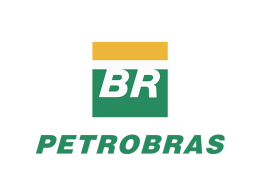by Axel Merk, Merk Funds
With the hangover from elections in the Eurozone lingering, which answer is correct?
a) A socialist is in charge in France;
b) Nobody is in charge in Greece; or
c) None of the above
The good news about a socialist running France is that his honeymoon shall be rather short. It took the previous socialist President François Mitterrand two years before he shelved his activist agenda and became a moderate. The market won’t be that patient; that’s why we pick answer c) above: the language of the bond market will be the only language policy makers listen to. The bond market is in charge.
What about Greece? It might be possible to put together a minority government of Antonis Samaras “New Democracy” and the former ruling “PASOK” party that is tolerated by the “Independent Greeks.” Panos Kammenos founded Independent Greeks after disagreeing to the terms of his country’s bailout when he was a member of the New Democracy. In the eyes of the Greeks, Germany and the International Monetary Fund (IMF) appear to be in charge; with anger over yielding to demands of those with money, German flags are frequently put on fire during Greek elections. One way to manage Greece’s future would be to give Greece money with no strings attached, except to tell them that no more money will follow suit. That way, the Greek people will own their own problems and can no longer blame others for their plight. In practice, Greece is likely to fall into chaos at some point, as the country has been unable to achieve a primary surplus, i.e. be able to operate before making interest payments; the question in our view is where the resulting anger will be focused.
What does it mean for the euro? The euro is recovering after a dire Monday morning; keep in mind, though, that much of Asia had a holiday and missed digesting the disappointing U.S. unemployment report; liquidity is low, as London is closed for a holiday. Medium term, however, our bigger concern is that big money, such as the Norwegian sovereign wealth fund, is taking a step back from the Eurozone. As such, the odds of more liquidity provisions from the European Central Bank (ECB) have increased. We believe the euro will underperform other European currencies; note, though, that the world, including the U.S., will remain awash in money. The rocky road will continue as policy makers hope for the best, but plan for the worst. This should bode well for commodity currencies in the medium term; of these, the Canadian Dollar, Norwegian Krone and New Zealand Dollar are currently our favorites.
In an upcoming newsletter, we will dive into different attitudes countries around the world have on the austerity versus growth debate and discuss implications for the U.S. dollar versus the currencies of those regions. Make sure to sign up to our newsletter to be informed as we discuss global dynamics and their impact on currencies. Please also register for our upcoming Webinar on May 22. We manage the Merk Funds, including the Merk Hard Currency Fund. To learn more about the Funds, please visit www.merkfunds.com.
Manager of the Merk Hard Currency Fund, Asian Currency Fund, Absolute Return Currency Fund, and Currency Enhanced U.S. Equity Fund, www.merkfunds.com
Axel Merk, President & CIO of Merk Investments, LLC, is an expert on hard money, macro trends and international investing. He is considered an authority on currencies.










